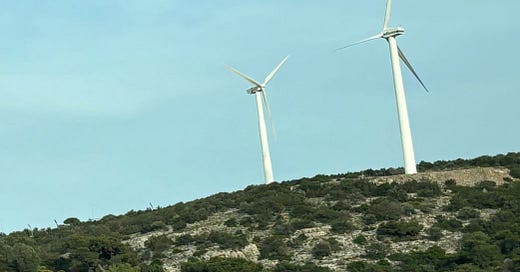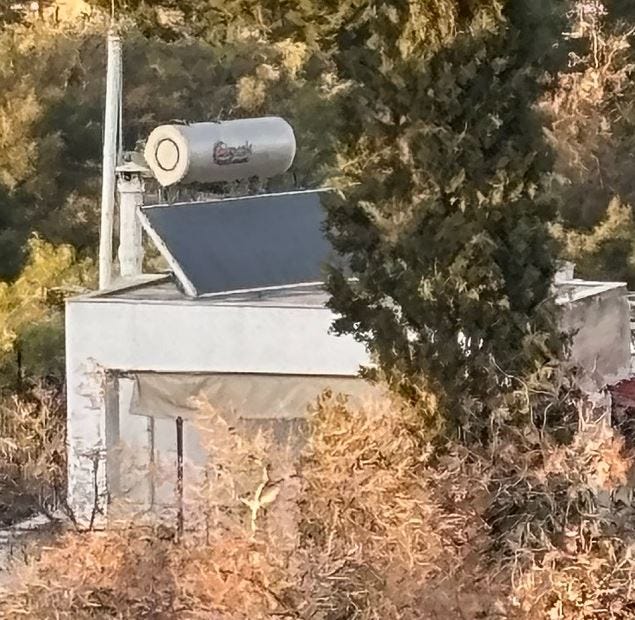Despite the headlines we are on an almost unstoppable path to an energy transition and battery power is supercharging this renewable revolution
If you ignore the daily churn of the news headlines to look deeper at the data; you’ll see something quite remarkable is happening globally with renewable energy and batteries are the key!
Fossil Fuels - We’re not going back
So yes, I’ve also seen the scary and depressing news headlines from the Trump administration, but one of the things that characterise such far-right governments is they live in a fantasy world that eventually meets reality. Trump recently wrote an executive order to ‘bring back coal’ - but the TR;DR is it is not going to happen because its expensive, dirty and the market has turned away from it;
The deeper pattern here stretches beyond coal into how energy transitions actually work. From wood to coal, coal to oil, and now fossil fuels to alternatives, these shifts are driven primarily by cost advantages, not policy preferences. The coal industry wants to frame its decline as regulatory overreach because that suggests a political solution. But the uncomfortable reality is that market forces, which Republicans typically celebrate, delivered the knockout punch. By 2015, natural gas had already surpassed coal in electricity generation through simple economic competition.
(Image: Wind power in action in Greece, 2025.)
This is a global phenomena as even China - a major user of coal - is importing less. Plus, it is not just coal that is retreating from the energy stage. Oil is too as it drops into the global energy mix, we can see that over 50% of the operating cashflow of major oil companies is not going to new oil capacity but is instead going to dividends and buybacks. In 2015 this was around 20%;
In 2024 fossil fuels dropped below 80% of global primary energy for the first time in modern history, and oil’s share dropped below 30% for the first time too. Oil and gas companies have reacted rationally by exiting the battlefield of energy growth, whether renewables or fossil fuels, and giving cash to shareholders instead. The future of energy is clearly being left to others: for oil and gas investors, caveat emptor.
That future is being taken by renewables. As Heatmap reported on 7th April noted that in 2024, 41% of the world’s power came from low-carbon sources;
Low-emission energy sources accounted for 41% of global electricity generation in 2024, up from 39.4% in 2023, according to energy think tank Ember’s annual Global Electricity Review. That includes renewables as well as nuclear. If nuclear is left out of the equation, renewables alone made up 32% of power generation last year.
Wherever you look, renewables are on the rise - India (almost tripled solar cell manufacturing capacity in last year), China (coal drops as renewables grow), Namibia, Uruguay and Kenya and so on. It is happening all over! The fact is that, over time, the stubborn refusal to accept reality from the leaders of a handful of world leaders, is going to amount to little more than a bump in the road on the way to the renewable energy future.
The Battery - The Workhorse of the Renewable Transition
A while back I’d written of the powerful momentum of renewables energy and a couple of people noted in comments and feedback (thanks for those!) that the missing link in the commentary I’d written was batteries. They are correct as the rise and rise of batteries has powered not just the huge growth of renewable energy but also that of electric vehicles (EVs) and that in turn may lead to, just from China, a billion tons of less CO2 emissions by 2040. Batteries are the work-horse of the renewable energy revolution allowing us to capture energy when nature gives it out;
"While solar continues to dominate clean energy headlines (and rightfully so), battery storage has quietly transformed from a niche technology into a mainstream grid resource. The numbers we uncovered in our analysis paint a picture of an industry hitting its stride at precisely the moment when the grid needs it most. What makes the battery storage story particularly compelling is how quickly the technology has matured. Just five years ago, utility-scale batteries were still considered experimental by many grid operators and utilities. Today, they're being deployed at gigawatt scale and playing crucial roles in maintaining grid reliability during extreme weather events, reducing electricity costs, and enabling higher penetrations of renewable energy."
I want to note the point above of how fast this has happened - in 5 years we’ve gone from grid-scale batteries being just a cool idea to them being everywhere as more and more capacity is being installed. It is a staggering technological and societal change. Why so much, so fast? Because it works. Around the globe, people are turning to battery power, for example in the US in 2024 60% more capacity was installed than in 2023 (which accounts for 1250 megawatts) - an almost exponential growth rate (Source, Heatmap AM 20th March). Thus far 2025 has seen the same kind of activity, where, in California for example battery use is up by 78%. This growth is mirrored around the world including in Australia and Brazil. (Note also as you read this - currently there is 10 times the battery capacity in EVs than in grid-scale. The numbers when combined we are off the charts!)
(Home energy for hot water and electricty, in Athens, 2025.)
This fascinating account from The Guardian about how a student (Roxana Borda Mamani) who had to return home to her remote Amazon village during the COVID crisis, turned to renewables and batteries to power her work and now, 5 years later, the whole village is running on solar and it is displacing fossil fuels;
Borda began researching the components of an off-grid solar energy system: photovoltaic (PV) panels, a battery, an inverter and a charge controller. Five years later, her community has a 400W solar system powering a 24-hour satellite internet connection and charging points for phones and torches next to a small school that was set up thanks to the new energy source. A second phase, due to be implemented this year, will equip households with PV panels, providing the community’s 50 families with regular electricity access and ending their reliance on expensive and polluting diesel generators.
This small change is being played out all over the globe - and its reducing demand for fossil fuels. Batteries are powering both a grid-scale and home-scale revolution, for example in Australia there was a 30% rise of home battery installation in 2024 and given how many homes have solar there (around 55%) there is a huge opportunity to expand that number!
Why has battery growth and use become so huge? For the same reasons it has with solar and wind - the technology has improved and the cost has come down. In 2021 the price had reduced a staggering 91% from what it was in 2018. (This, of course, opens up questions around how we get the materials to make them, the manufacture and recycling of grid-scale batteries - but progress there is happening too.)
In Conclusion
Yes, folks, the news in the US can be worrying (and I’d recommend this as a good source of news+action) but human ingenuity is a more powerful force than any single government. We are seeing it applied at a global scale to the issue of energy and its storage. We are also seeing the results of this potency writ large and the headlines are that we’re not going back, as reported form a recent energy summit:
But the gathered ministers were largely looking beyond fossil fuels. European politicians, especially, spent the summit saying their future did not involve swapping Russian gas for American imports, but was led primarily by clean energy.
Amen to that.
PS. Please note that this project now has an action page. Do check it out for things you can do.
PPS. Also this newsletter is both a personal project and represents my personal views and not that of any organisation or company. Comments and feedback are always welcomed!






If we halt the stupidity and stop buying renewables in the west the rest will stop making them.
Good to hear from you!! Thanks for putting this together. Keep it up.